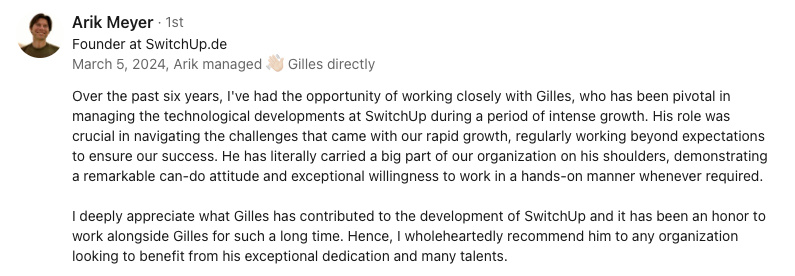Abstract:
The field of genomics is at the forefront of medical and technological advancements, offering unprecedented insights into the genetic blueprint of life. This progress promises to transform healthcare by enabling precision medicine, where treatments and preventions are tailored to individual genetic profiles. Innovations such as CRISPR-Cas9 gene editing and advanced DNA sequencing technologies are paving the way for groundbreaking treatments for a range of diseases, including genetic disorders, cancer, and infectious diseases. These advancements not only have the potential to extend life expectancy but also to enhance the quality of life, reducing the burden of disease on a global scale. As we navigate the complexities of genetic data, ethical and privacy considerations remain paramount, challenging professionals to balance innovation with digital trust. This exploration of genomic innovations underscores a pivotal shift in healthcare, marking an era where genetic information empowers personalized medicine and opens new frontiers in medical research.
Introduction to genomic innovations and their impact
Welcome to the fascinating world of genomics! Over recent years, the field of genomics has transformed the face of medicine. By decoding the very blueprint of life—our DNA—genomics has unlocked unprecedented opportunities to understand, diagnose, and treat diseases. This journey into the depths of our genetic information reveals the unique code that defines each individual's biological makeup.
Understanding this genetic code has revolutionized healthcare. Physicians can now identify the underlying causes of many illnesses, tailoring treatments to the genetic profile of each patient. This is the essence of precision medicine, where healthcare moves from a one-size-fits-all model to a more personalized approach. By focusing on individual differences in genes, we can treat diseases more effectively and with fewer side effects.
As we explore genomic innovations, we'll discuss three key areas: the groundbreaking CRISPR-Cas9 gene editing technique, advanced DNA sequencing technologies, and the implications of these advancements on personalized medicine. At the same time, there are crucial ethical and privacy considerations that need to be addressed. Let's embark on this journey to see how genomics is revolutionizing medicine, ensuring that patients receive the best possible care tailored to their unique genetic makeup.
CRISPR-Cas9 gene editing and its revolutionary potential
CRISPR-Cas9 is a groundbreaking technology that has taken genetic research by storm, offering unprecedented possibilities in correcting genetic disorders. At its core, CRISPR-Cas9 is a molecular tool designed to locate, cut, and replace specific sequences of DNA, acting like a pair of molecular scissors. By guiding the Cas9 enzyme to precise locations within the genome, scientists can edit genes with remarkable accuracy.
This innovative approach holds immense promise for treating a myriad of genetic disorders. For instance, conditions like cystic fibrosis, sickle cell anemia, and muscular dystrophy—once considered incurable—could potentially be treated using CRISPR-Cas9. By correcting the defective genes responsible for these diseases, patients may experience significant improvements in their health and quality of life.
An example to consider is the ongoing research into sickle cell anemia. This disorder, which affects millions worldwide, results from a single genetic mutation that causes red blood cells to deform. Researchers are exploring the use of CRISPR-Cas9 to edit the faulty gene, thereby enabling the production of healthy red blood cells. Early clinical trials are showing promising results, paving the way for a future where genetic anomalies like this could be effectively managed.
The current state of research into CRISPR-Cas9 is both exciting and full of potential. Numerous clinical trials are underway, investigating its application across various genetic conditions. According to Dr. Jennifer Doudna, one of the pioneers of CRISPR technology, "The ability to edit the human genome with such precision opens up countless avenues for treating previously untreatable diseases." However, this cutting-edge technology also comes with challenges and ethical considerations.
One significant concern involves the unintended consequences of gene editing, known as off-target effects. These are instances where the Cas9 enzyme may cut DNA sequences similar but not identical to the target, potentially leading to harmful mutations. Researchers are continually refining the technique to enhance its precision and minimize these risks. Furthermore, extensive discussions are ongoing about the ethical implications, especially concerning germline editing, which affects future generations.
Expert perspectives and pioneering research
Experts like Dr. Feng Zhang, another leading figure in CRISPR research, emphasize the need for cautious advancement. "While the potential of CRISPR-Cas9 is unparalleled, we must ensure that its application is both safe and ethical," Dr. Zhang remarks. This technology indeed holds transformative power, but it must be handled with the utmost responsibility and care.
As the research unfolds, the hope is to harness CRISPR-Cas9 for its vast potential while meticulously navigating the associated challenges. This balance will be crucial in transforming genetic research from promising experiments to reliable clinical applications. The journey of CRISPR-Cas9 from the lab to the clinic is one of the most thrilling scientific advancements of our time, heralding a new era in medical treatment and genetic understanding.
Advanced DNA sequencing and personalized medicine
Advancements in DNA sequencing technologies have been a driving force behind the rise of personalized medicine. These cutting-edge technologies enable the detailed analysis of individual genetic profiles, providing deep insights into a person's unique biological information. By mapping out the complete sequence of an individual's DNA, healthcare providers can tailor medical treatments and preventive strategies more effectively.
One of the key advancements is next-generation sequencing (NGS). This technology has vastly improved the speed and accuracy of sequencing, making it more accessible and cost-effective. With NGS, scientists can analyze entire genomes in a matter of hours, which was unimaginable just a decade ago. This rapid sequencing capability allows for a comprehensive understanding of genetic variations that drive various diseases.
For instance, in cancer treatment, NGS can identify specific mutations within a tumor's DNA, enabling oncologists to choose targeted therapies that are more likely to be effective. This approach, known as precision oncology, has significantly improved outcomes for many patients by focusing treatments on the genetic underpinnings of their cancers. Similarly, genetic profiling can guide decisions for other conditions, such as cardiovascular diseases and neurological disorders.
Recent developments in DNA sequencing
Recent developments in this field have further pushed the boundaries of what is possible. Technologies like single-cell RNA sequencing (scRNA-seq) allow for the examination of genetic material at the single-cell level. This has profound implications for understanding complex biological processes and developing more precise interventions. Additionally, advancements in bioinformatics provide sophisticated tools for analyzing vast amounts of genomic data, turning raw sequences into actionable medical insights.
The integration of genomic data into clinical practice is transforming healthcare delivery. By incorporating genetic information into patient records, medical professionals can make more informed decisions. This integrated approach helps in predicting disease risks, optimizing drug therapies, and even recommending lifestyle changes to prevent illnesses before they occur.
The advantages of personalized medicine are manifold. Patients benefit from treatments tailored to their unique genetic makeup, reducing the likelihood of adverse reactions and increasing the chances of successful outcomes. Moreover, this personalized approach paves the way for preventive medicine, where potential health issues can be identified and addressed long before they manifest as serious conditions.
In summary, the synergy between advanced DNA sequencing technologies and personalized medicine is reshaping the landscape of healthcare. By harnessing the power of genomic data, we are moving towards a future where medical interventions are not just reactive but proactive, offering a new paradigm in patient care and wellness.
Ethical and privacy considerations in genomic data
As we harness the potential of genomic data, it's crucial to address the significant ethical and privacy concerns that arise. While the benefits are vast, maintaining patient confidentiality and ensuring digital trust are paramount. Genomic information is deeply personal, containing insights that could affect not just the individual but also their relatives.
Professionals face several challenges in responsibly and securely using genomic data. These include risks related to data breaches, unauthorized access, and the potential misuse of genetic information. To navigate these challenges, it's essential to establish robust frameworks and guidelines.
Some potential solutions include:
- Data encryption: Implementing advanced encryption methods to protect genetic information from unauthorized access.
- Strict access controls: Ensuring that only authorized personnel can access sensitive genomic data.
- Informed consent: Ensuring that patients are fully aware of how their genetic information will be used and stored.
- Ethical oversight: Establishing oversight committees to review and monitor the ethical use of genetic data in research and clinical practice.
Maintaining ethical standards is crucial to support the ongoing advancements in genomics. By balancing innovation with comprehensive privacy measures, we can ensure that the incredible benefits of genomic technologies are realized while respecting and protecting individual rights.
You might be interested by these articles:
- Genomic Editing Techniques
- The Future of Genomic Advances
- Genomics: A New Hope for Europe's Environmental Future





